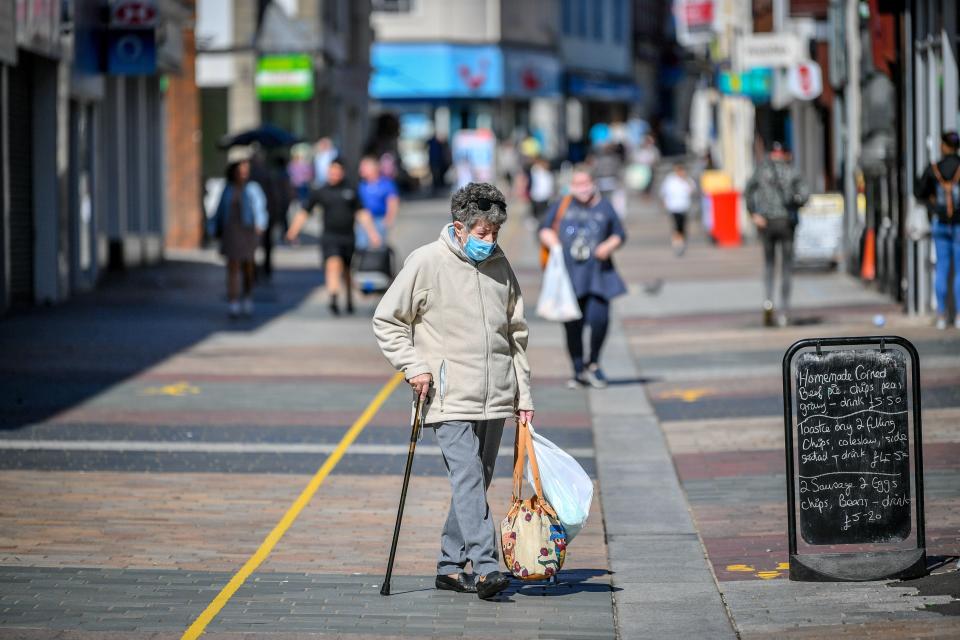Inflation tumbles to 0.3 per cent as Black Friday sales push prices down

Prices fell across a number of the main groups of goods and services including transport, health, recreation and culture
(PA)UK inflation slowed markedly in November as tighter coronavirus restrictions and Black Friday sales led to lower prices for a range of goods.
Prices fell across a number of the main groups of goods and services including transport, health, recreation and culture.
The cost of fuel, clothing and food fell as England entered a national lockdown and tough measures were in place across Wales, Northern Ireland and Scotland. Retailers lowered prices to tempt shoppers who may have been more reluctant to spend in uncertain economic times.
The Consumer Prices Index rose by just 0.3 per cent compared to 0.7 per cent in October, the Office for National Statistics (ONS) reported. Analysts had forecast that the index, which tracks the prices of hundreds of goods and services, would come in at 0.6 per cent.
“With significant restrictions in place across the UK, inflation slowed, predominantly due to clothing and food prices,” said Jonathan Attow, the ONS’ deputy national statistician.
While falling prices are good news for shoppers in the short term, the fact that retailers are discounting more heavily than in previous years also indicates lower demand in the beleaguered UK economy which is expected to shrink by 11 per cent in 2020, the largest annual decline in 300 years.
“Of course, Black Friday occurs every year, but this time around discounts were particularly steep in clothing sales, which led to an unseasonal fall in prices,” said Laith Khalaf, financial analyst at AJ Bell.
“That highlights the continued pressure on the retail sector, and while price cuts on the shelves are good for consumers, they don’t bode well for profits.”
With inflation well below its target rate of 2 per cent, pressure will increase on the Bank of England to stimulate the economy by lowering interest rates or printing more money.
Rates are expected to remain at the current record low of 0.1 per cent when the Bank’s Monetary Policy Committee announces its decision on Thursday.
The Bank has created £445bn of additional money to buy up government debt this year – more than during the 2008 financial crisis. This has not, as some economists had predicted, caused inflation to rise.
“Runaway inflation is a risk worth keeping an eye on, both domestically and internationally, but it is one that has failed to come home to roost throughout the last decade of ultra-loose monetary policy,” said Khalaf.
“That’s because there are also deflationary forces at work in the global economy, most notably technological advances and ageing populations in developed nations.
“Perhaps there will come a point when inflation does rear its head and cause central banks to pivot their policy. But for the time being low interest rates and loose monetary policy look like the only game in town.”
A no-deal Brexit would cause prices of some goods to rise, said Rachel Winter, associate investment director at Killik & Co.
“Unemployment has also shot up to the highest rate on record further rocking consumer confidence and they will continue to exercise caution when it comes to discretionary spend.
“All this will impact inflation figures, although a no-deal Brexit outcome, which is a real possibility, will weaken sterling and cause imported food price inflation, further hitting consumers.”
Read More
Taxing wealthy the best way to save economy from Covid, say experts
